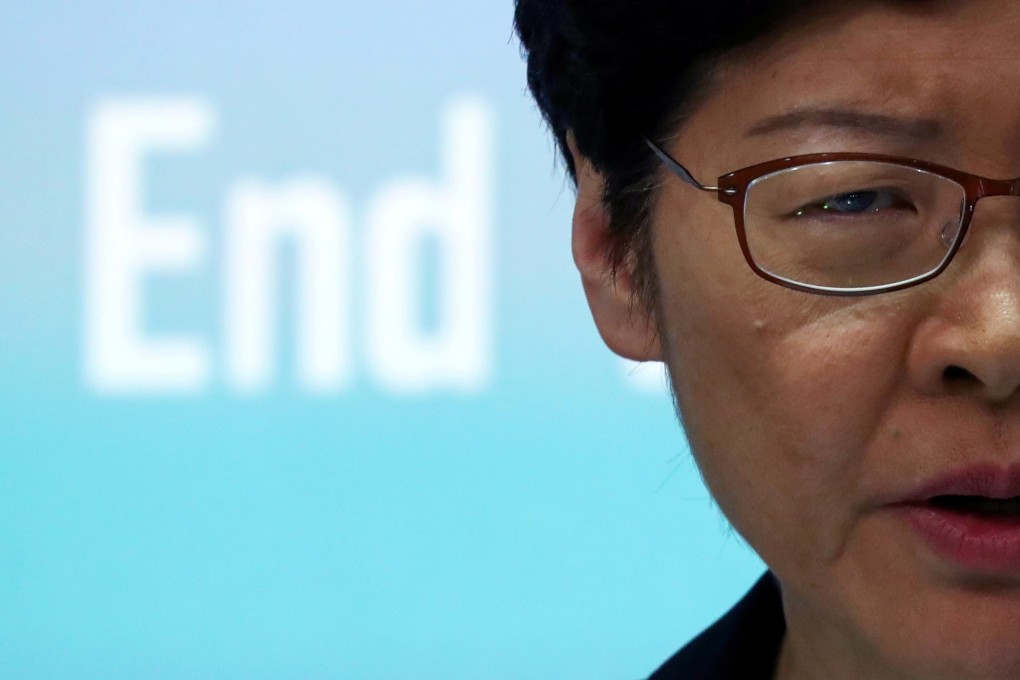Opinion | What choice do Hong Kong protesters have when the options are the PLA or dictator-in-the-making Carrie Lam?
- Hong Kong’s morally bankrupt government has crossed the line by invoking emergency powers to bring in an anti-mask law. We have indeed entered a ‘very dangerous situation’ – Carrie Lam, with her unchecked authority, is that danger

I have witnessed and experienced bravery, kindness and fear in Hongkongers. On September 29, as I walked from Central to Admiralty for dinner, I was trapped at the Admiralty government offices as the police fired tear gas on Queensway. Pacific Place chained its doors from inside and security personnel refused to open them. The fear in similarly ensnared passers-by (Hongkongers and tourists) – and in me – was sudden and palpable, and I immediately thought of the movie Train to Busan .
Ultimately, we were directed to run up to the High Court and I collapsed as soon as I arrived, having breathed air contaminated by tear gas as I was not wearing a mask. Four young people rushed to pour their precious bottled water and saline on me.
I subsequently had my own moment with a police officer from the bridge to the police headquarters who admonished me for taking photographs on the deserted Hennessy Road. When I asked if photography was no longer legal, he threatened me with a camera. I managed to photograph his unmasked face in turn.
John F. Kennedy once said: “In whatever arena of life one may meet the challenge of courage, whatever may be the sacrifices he faces if he follows his conscience – the loss of his friends, his fortune, his contentment, even the esteem of his fellow men – each man must decide for himself the course he will follow.”
